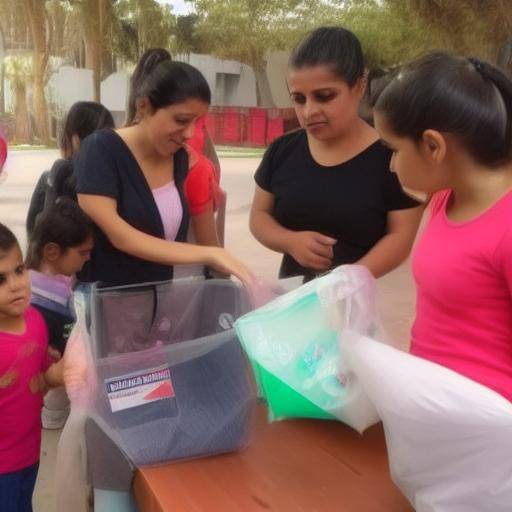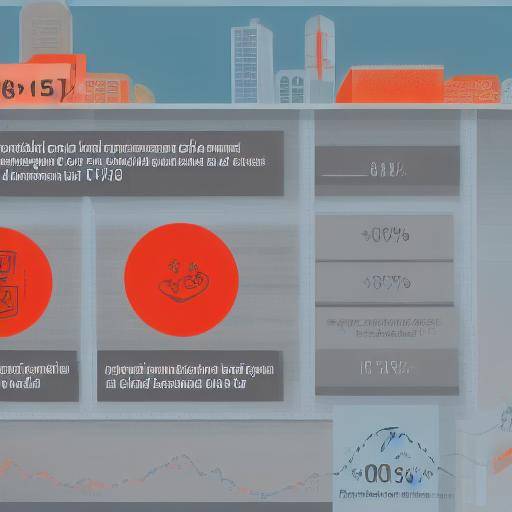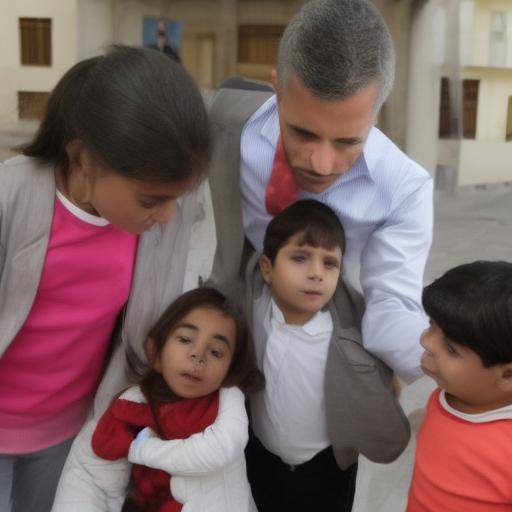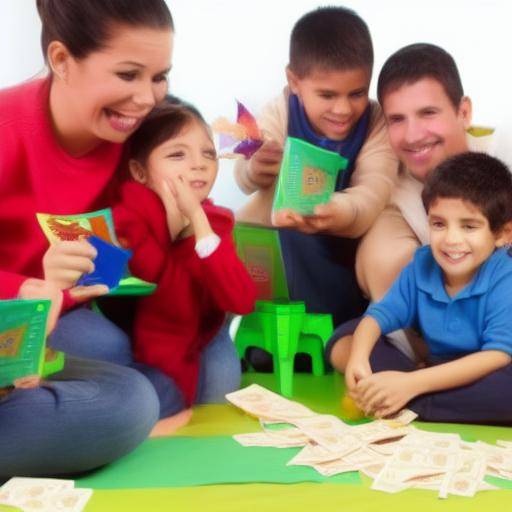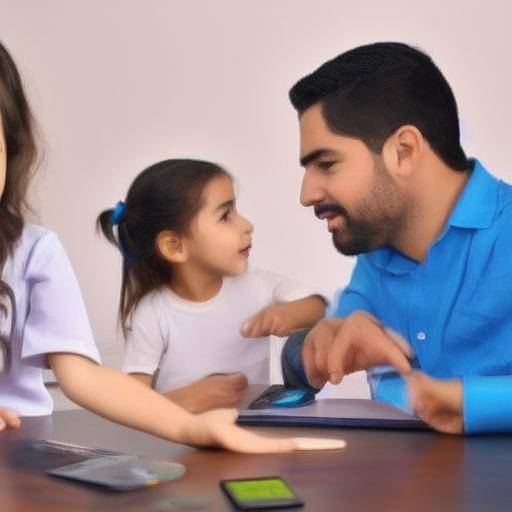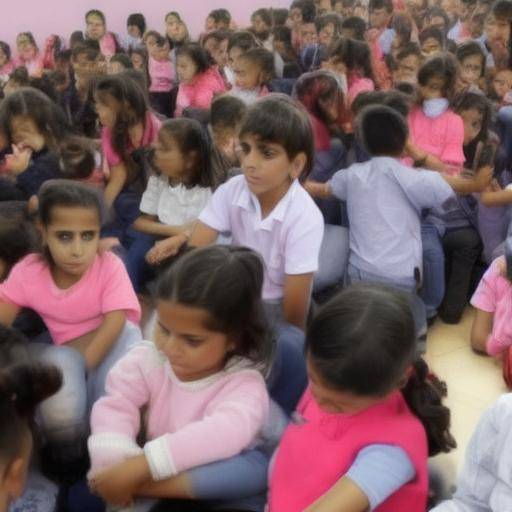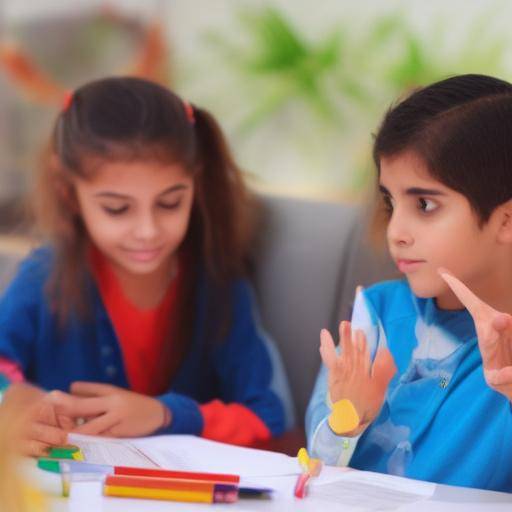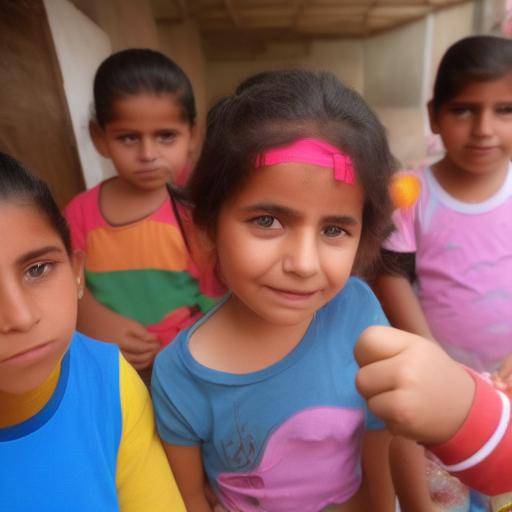
Generosity, responsibility and impact are fundamental values that all parents wish to inculcate in their children. Teaching children about the importance of donating and sharing from an early age not only fosters a greater sense of empathy and solidarity, but also lays the foundation for them to be responsible and compassionate individuals in the future. In this article, we will explore effective strategies to teach children about the generosity, responsibility and social impact of their actions, providing parents with the necessary tools to guide their children to a path of understanding and collaboration.
The importance of generosity
Generosity is a value that goes beyond the simple action to give. It includes the willingness to help others, share with the less fortunate and act with compassion. Teaching children about generosity from an early age can have a significant impact on their emotional and social development. Children who practice generosity tend to show higher levels of personal satisfaction, empathy and gratitude, which helps them establish strong and meaningful interpersonal relationships throughout their lives.
Encourage generosity from home
Generosity is cultivated at home. Parents can model generous behaviors, engage in volunteer activities and discuss the importance of helping others. Involving children in solidarity activities, such as donating toys used to charities or participating in community projects, gives them a practical understanding of the positive impact they can have on the lives of others.
The responsibility and impact of our actions
The responsibility and social impact of our actions go hand in hand with generosity. Teaching children about their social responsibility and the impact they can have on their environment allows them to develop a wider awareness of how their choices and behaviors influence others and society at large.
Teach responsibility through example
Parents can teach responsibility by modeling ethical behavior and demonstrating the value of meeting obligations. Promoting responsibility for household tasks, pet care and active participation in the community contributes to children internalizing the concept of responsibility as an integral part of their lives.
The lasting impact of teaching generosity and responsibility
Teaching children about the generosity, responsibility and impact of their actions not only shapes their individual character, but also influences how they interact with the world around them. Children who internalize these values tend to be more aware of the needs of others, make more ethical decisions and become agents of positive change in their communities.
Sow seeds for the future
By sowing the seeds of generosity, responsibility and social impact on children, parents contribute to the formation of a future generation of compassionate, empathetic and socially committed individuals. These values not only enrich the lives of children, but also have the potential to positively transform society as a whole.
Conclusion
Teaching children about the importance of donating and sharing, as well as cultivating generosity, responsibility and understanding of the impact of their actions, is a lasting gift that parents can give to their children. These fundamental values not only shape the character of children, but also contribute to the formation of solidarity and responsible individuals who have the power to positively impact society. With the right support and the right example, parents can guide their children to a path that fosters compassion, empathy and genuine desire to help those around them.
Frequently asked questions
How can I teach my child about the importance of generosity from an early age?
Teaching children about the importance of generosity from an early age can be done through practical activities such as donating toys or clothing, participating in volunteer projects and fostering the spirit of mutual help in the family and community environment. In addition, it is essential that parents serve as models to follow, demonstrating generous behaviors and explaining the reasons behind their solidarity actions.
How can I teach my son about social responsibility?
Social responsibility can be taught to children through everyday examples, such as homework, environmental care, respect for others and participate in community activities. It is important to explain to them the positive impact their actions have on their environment and society at large.
What is the long-term impact of teaching children about generosity and responsibility?
Teaching children about generosity and responsibility has a significant long-term impact, as it helps them develop a strong ethical and moral basis, promotes their emotional well-being, strengthens their social skills and promotes their active participation in the community. These values are translated into compassionate, supportive and committed adults with their environment.
How can I strengthen the teaching of generosity and responsibility in my child's daily life?
The teaching of generosity and responsibility can be strengthened in daily life through activities that encourage empathy, compassion and service to others. Parents can encourage their children to participate in acts of kindness, to share with those who need help and to make commitments within and outside the home.
How can I help my child understand the impact of his actions on others?
It is essential that parents talk with their children about the impact their actions have on others, encouraging reflection and understanding of the consequences of their decisions. Through concrete examples, such as the positive effect of aid or damage to selfish behavior, children can internalize the impact of their actions on society.
What is the importance of teaching children about the impact of their actions on society?
Teaching children about the impact of their actions on society allows them to become aware of the power they have to generate positive changes. By understanding the responsibility of their influence in the environment, children learn to make decisions based on ethical values and contribute significantly to common well-being.
In short, teaching children about the generosity, responsibility and impact of their actions provides a solid basis for them to become individuals committed to their environment, capable of empathizing with others and actively contributing to the construction of a more equitable and solidarity society. This process, guided by the example and guidance of parents, has the potential to forge conscious and compassionate individuals that have a positive impact on the world around them.

